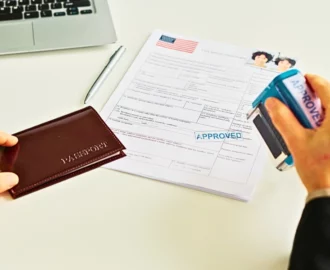People in Illinois with criminal records might still be eligible for green cards, depending on the nature of their criminal convictions. Some criminal convictions will make people inadmissible and might subject applicants to deportation and removal proceedings. People who have convictions on their records for aggravated felonies, crimes of moral turpitude, or illegal drug crimes will be inadmissible. Other types of criminal convictions may not make people ineligible, however. Green card applicants need to make certain to disclose their arrests and convictions on their green card applications. If they fail to disclose the information, their applications may be denied.
Crimes That Disqualify Green Card Applicants
People who have been convicted of crimes that involve illegal drugs will be considered to be inadmissible in most cases. This includes possession of certain amounts of drugs such as heroin, methamphetamine, cocaine, and others. Immigration law also states that crimes of moral turpitude make people ineligible. However, moral turpitude has been defined differently by different courts. Some examples of crimes of moral turpitude include the following:
- Domestic violence
- Fraud
- Murder
- Stealing
- Crimes of violence
Aggravated felonies will also disqualify applicants. Certain crimes that are listed in the Immigration and Nationality Act make applicants inadmissible, including kidnapping, prostitution, money laundering, human trafficking, and terrorism. People who have multiple convictions that add up to more than five years of incarceration together will likely be disqualified and may be deported.
Exceptions and Waivers
Some people who have convictions that would otherwise make them inadmissible might be eligible for an exception or a waiver. An example of an exception might include a crime of moral turpitude that had a sentence of six months or that was committed by the person when he or she was a minor. The petty offense exception might apply when a person was convicted of a crime and received a sentence of less than one year.
Applicants who have disqualifying criminal convictions on their records might also be able to apply for a waiver of their records. A waiver might be granted by the U.S. Customs and Immigration Services if the applicants are able to prove that not granting the waiver will cause serious hardship for a spouse or parent who is either an American citizen or a permanent resident.
When people complete their applications, they must disclose their criminal records. If they do not, their applications may be denied, and they may be deported.




